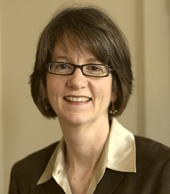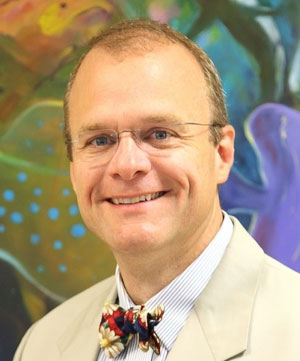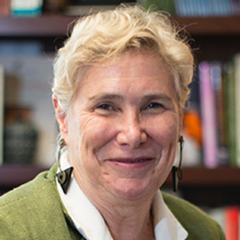Resources
Presentations
Presentations available on this page:
-
Professor Renée Spencer - has visited NZ a couple of times over the last 10 years. Her first presentation looks at trends and issues in youth mentoring and her second very informative presentation focused on the concept of youth initiated mentoring.
- Professor Michael Karcher - in his presentation Prof. Karcher explores the continuum of developmental relationships between adults and young people to help define mentoring and describe how it works. And he introduces the concept of VIPs – ‘very important people’ in young people’s lives.
- Professor Toni Zimmerman - introduces the Campus Corps youth mentoring model she and her colleagues developed in response to an identified community need to better serve at-risk youth in Colorado.
- Dr. Julia Price - the focus of Dr Price's presentation is the concept of attunement; our ability to be flexible and responsive, managing our own needs with that of the other, in youth mentoring programs.
- Edith (Winx) Lawrence - in her presentation Winx focused on the Young Women’s Leaders Program she developed at the University of Virginia
Renee Spencer Seminar - current trends and issues in youth mentoring
The NZ Youth Mentoring Network were delighted to host Renee Spencer, an internationally recognised expert and practitioner in youth mentoring.Ren ee’s topic of discussion was ‘Current trends and issues in youth mentoring’. She shared with us eight lessons she has learned through her work in the field of youth mentoring. This was very stimulating and affirming.
We are pleased to be able to share Renee’s presentation with you - click here to download.
Listen to Professor Renée Spencer presentation on Youth Initiated Mentoring

It was wonderful to see many of you at Professor Spencer's presentations in Auckland and Wellington earlier this month. We hope you found her topic of Youth Initiated Mentoring really interesting and thought provoking.
For those of you who were unable to attend in person we are pleased to be able to offer you the opportunity to listen to the Professor's Auckland presentation.
Here is the link to the Audio recording and the corresponding Powerpoint presentation. The recording is just under 50 minutes in duration.
Professor Spencer provided a comprehensive analysis of how this innovative new approach in mentoring practice can influence the entire mentoring process from mentor recruitment and selection through to matching and closure.
A couple of key points of difference that really stood out for me were firstly, around mentoring expectations. As the young people already have knowledge of their potential mentor, they tend to have more realistic expectations for the mentoring relationship rather than some idealised view. Secondly, the approach provides a really strong platform for 'youth voice and choice' in that the young person has significant input into who will be their mentor which in turn can increase the likelihood of the relationship going the distance.
The research findings Professor Spencer shared with us are showing some promising trends, particularly with higher-risk young people. NZYMN sees some real potential for adopting this approach in the NZ environment and we look forward to continuing the conversation.
Thank you to Pat Bullen, University of Auckland, Faculty of Education and Social Work and the Hon Nikki Kaye, Minister for Youth for making these presentations possible.
Listen to Professor Michael J. Karcher’s presentation that he delivered in Auckland last month

We were delighted to host Professor Karcher, Unversity of Texus, leading United States mentoring researcher and co-editor of both editions of the Handbook of Youth Mentoring, last month for a presentation in Auckland.
We were completely humbled by Professor Karcher’s commitment to offer the best possible support during his brief visit to NZ – to the extent that he decided to revise his planned address and undertake significant research into NZ circumstances
We took the opportunity to record Professor Karchers address and have included the link to the recording. It is just over an hour long and finishes just before a video clip he used from the Kung Fu Panda movie which depicts the need as a mentor to ‘trust the process - it is not about trying to fix the young person’.
In his presentation, Professor Karcher really explored the continuum of developmental relationships between adults and young people to help define mentoring and describe how it works. He spoke at length about the concept of VIPs – ‘very important people’ in young people’s lives and referred to an excellent quote by Richard Lerner (Director of the Institute for Applied Research in Youth Development at Tufts University) “Our calling someone a mentor does not make them one. No one is a mentor until the mentee sees them as one”.
He spoke about valuing both the Developmental Mentors vs Instrumental models of mentoring - relational focus vs future goal focused mentoring. Depending on the mentoring programme and the age of the young person, a mentoring relationship may start out more relational focused vs future goal focused.
Prof. Karcher encourages programmes to help mentors think about:
- Focus—how directive they are being (developmental is less, instrumental is more directive)
- Purpose—adult, conventional, future-oriented goals or playful, fun, youth-oriented goals
- Authorship—who selects the activity and conversation topics and how?
He shared an excellent chart describing a range of actions and roles within the four poles of TALKING, PLAYING, LEARNING and DOING, with young people exercising the power of choice. This really illuminates the action experience in sessions and will be very helpful for mentors in positioning their practice.
Another key message which attendees really valued was the importance of saying ‘ Goodbye’ (preparing them for positive closure) and incorporating this into the end of every session via the 3:2:1 model of – three things that went well; two areas for improvement; and one hope for next time. This reflective verbal focus on ‘wrapping it up well” really emphasizes the role of the mentor’s gift of significance and love, opening-up to kids to be more receptive – which ties in with what some pairs currently do through journaling – writing to each other –pre-session, then beginning their time together by discussing what the other has expressed.
His points on ‘avoidant attachment’ which is a defence mechanism of young people who lose ‘traces of hope of being loved’, and the huge importance of ‘an adult who conveys specialness to such young people, by consistently showing up, being available and expressing interest – ‘I value you for YOU, I like being with you’ really bought home to all that attended the presentation, the difference a caring person can make in the life of these young people.
View recorded presentation here.
Additional resources:
 TEAM Framework
TEAM Framework
 Handout on developmental and instrumental mentoring models
Handout on developmental and instrumental mentoring models
 Article on Activities and Interactions
Article on Activities and Interactions
 2 Studies
2 Studies
 YouTube Links
YouTube Links
Listen to Prof. Toni Zimmerman's presentation on mentoring at risk youth
It was really good to see so many of you at Distinguished visitor Professor Toni Zimmerman's presentations in Wellington and Auckland last month. The NZYMN welcomed the opportunity to co-host these presentations with the University of Auckland, Faculty of Education. Thank you to Dr. Pat Bullen and the University of Auckland for sponsoring the Professor's visit.
For those of you who were unable to attend in person we are pleased to be able to offer you the opportunity to listen to the Professor's Auckland presentation.
The link to the Audio is at the bottom of webpage opens here.
The presentation is approximately one hour in duration and concludes just before the end of the Q&A session. Prof. Zimmerman is a very accomplished and engaging public speaker and does not use many slides during her presentation. You may therefore find it valuable to scroll through the excellent introductory power point presentation from the home page of the Colorado State University Campus Corps webpage while listening to her speak.
The main focus of the Professor’s presentation is the Campus Corps youth mentoring model she and her colleagues developed in response to an identified community need to better serve at-risk youth. The young people being referred to Campus Corps from Youth Justice, Social Services agencies and schools are presenting with some of the most challenging behavioural and mental health issues. The mentoring model has a unique three-pronged approach to address their specific needs:
- One-on-one mentoring
- Mentoring pairs also engage in group-based activities, and
- Family Therapists are onsite to support youth as needed.
The programme has been running for about six years now and is achieving some very promising outcomes. Research results show that among the youth that attend Campus Corps, thereis improvement in the following areas:
- Reduced truancy
- Reduced substance use
- Reduced delinquent behavior
- Improved attitudes about substance use, and
- Improved psychological well being.
Participation in the programme for the mentors is also showing some very positive results and is associated with 63% lower odds of dropping out of university in any given year. Student mentors reported:
- Improved leadership skills
- Improved ability to manage stress
- Increased self-awareness
- Expanded commitment to civic action, and
- Enriched interpersonal skills
Professor Zimmerman’s experiences certainly highlight important strategies for working effectively with vulnerable youth. More specifically how to: sustain matches; engage in safe group-based activities; support youth autonomy; and provide therapy in the moment. The Campus Corps model also highlights the benefits of youth mentoring as a service learning activity. Since Professor Zimmerman’s visit there has been significant interest in the Campus Corps model. A team of academics and government officials are currently exploring how this model could be adapted and implemented here in Aotearoa. The NZYMN is delighted with the interest generated from Professor Zimmerman’s presentations and will continue to keep you informed of any progress.
Catch up on Dr. Julia Pryce's presentation on the concept of Attunement
 It was wonderful to see many of you at Dr. Julia Pryce’s presentation as part of our Involve National conference in Wellington in August. We hope you found her topic useful and exciting, as she works to help us equip mentoring staff, and mentors themselves, with the skills needed to build strong connection in our relationships.
It was wonderful to see many of you at Dr. Julia Pryce’s presentation as part of our Involve National conference in Wellington in August. We hope you found her topic useful and exciting, as she works to help us equip mentoring staff, and mentors themselves, with the skills needed to build strong connection in our relationships.
For those of you who were unable to attend in person, we are pleased to be able to provide an abbreviated copy of her Powerpoint Presentation. If you would like to learn more about the Mentoring FAN tool that she introduced, please email her directly at at jpryce@luc.edu and she can share more.
Here is the link to her presentation: Involve 2018 ATTUNEMENT PRESENTATION
Dr. Pryce’s presentation was focused on the concept of attunement; our ability to be flexible and responsive, managing our own needs with that of the other, in youth mentoring programs. Dr. Pryce is working closely with colleagues in Chicago (namely Dr. Linda Gilkerson, who developed the original FAN) and here in New Zealand (Drs. Deane and Bullen of University of Auckland) to develop a greater, cross-cultural understanding of the nature of attunement and its measurement. Dr. Pryce emphasized the challenge that youth workers face in remaining grounded and present in the midst of the stressors of their work, and how those stressors may move us to think about our days as “checking off our list of to-do’s”, rather than building relationships. She also highlighted the importance of attunement across the system of relationships that characterize youth mentoring, including that between staff-mentor and staff-youth, as well as mentor-youth pairs.
Dr. Pryce, along with Drs. Deane and Bullen, are exploring with the Network other ways that she may be able to use her research to help support strong mentoring practice here in New Zealand. Please do not hesitate to contact the Network, or Dr. Pryce directly, should you have interest in further exploring attunement measurement or training.
Catch up on Edith "Winx" Lawrence's presentation - A competence approach to mentoring
 It was wonderful to see many of you at Edith "Winx" Lawrence's presentation in Auckland a couple of weeks ago. We hope you found her topic really valuable and thought provoking.
It was wonderful to see many of you at Edith "Winx" Lawrence's presentation in Auckland a couple of weeks ago. We hope you found her topic really valuable and thought provoking.
For those of you who were unable to attend in person we are pleased to be able to provide a copy of the handout Winx shared together with her Powerpoint presentation.
Bringing Out Their Best. New Zealand 2018
YWLP Handout
Winx's presentation was focused on the Young Women’s Leaders Program she developed at the University of Virginia - with university students mentoring targeted middle-school girls, which has now expanded to several other countries. Despite the specific focus of this work, it was great to see the diversity of our audience, who found so much relevance in the rich range of information that was generously made available.
She noted the universal truth of the importance of language. Leadership is a powerful and positive concept, equally relevant to both age groups of the young women. Based on self-determination theory, the program faces up to challenging issues like “How to have difficult conversations?”
Winx also emphasised the importance of training for mentors and that there is widespread under-estimation of the support needed to do a good job – while peer-mentoring needs lots of adult support. Quoting from US mentoring guru Jean Rhodes (2002) she memorably shared “When the tool of change is a close relationship, everyone involved should proceed with caution.”
NZYMN is very grateful to our academic colleagues at the Faculty of Education and Social Work, University of Auckland, who have made it possible for us to co-host a range of distinguished US professors speaking on various aspects of Youth Mentoring over the years.


